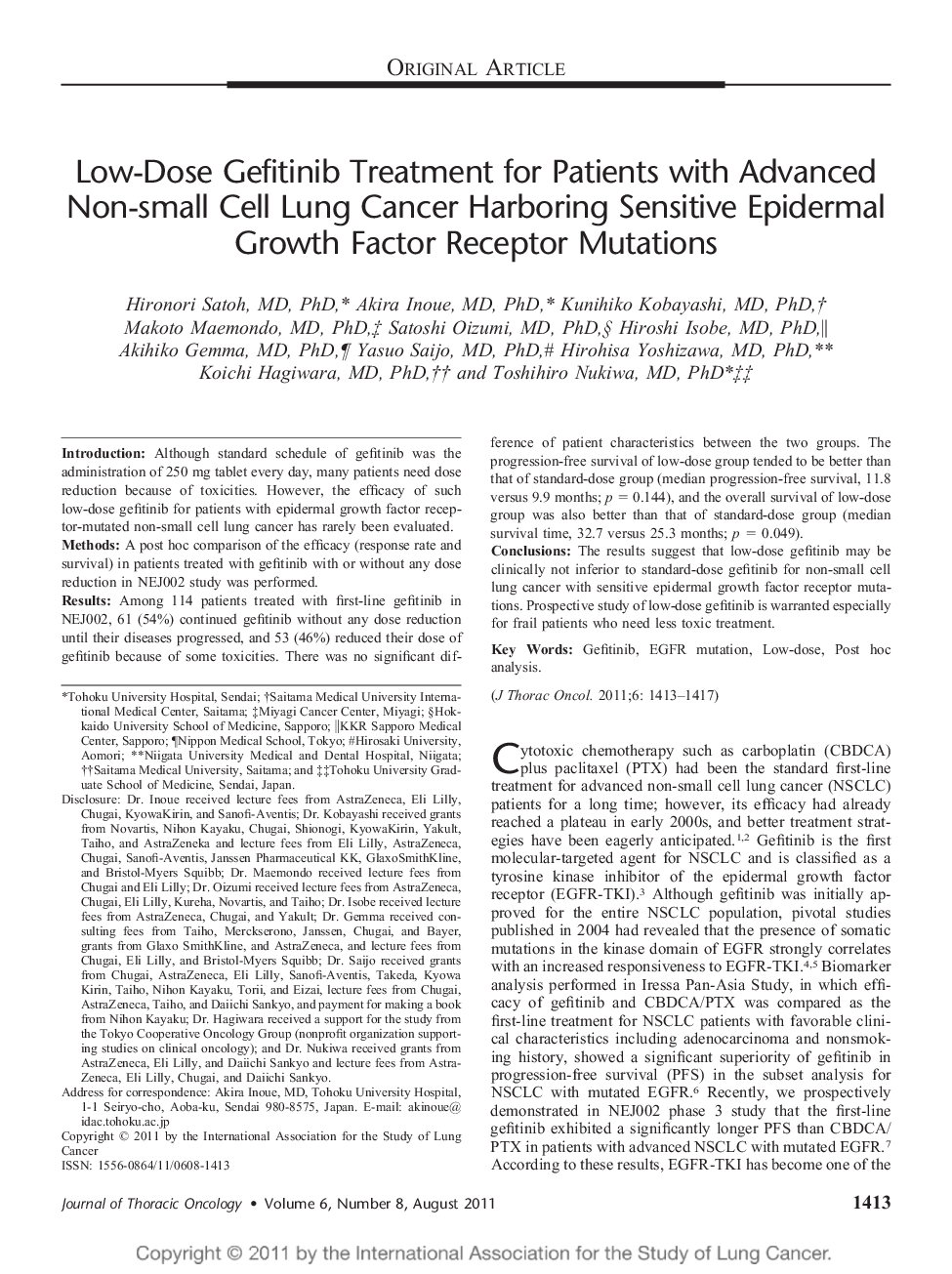| Article ID | Journal | Published Year | Pages | File Type |
|---|---|---|---|---|
| 3990959 | Journal of Thoracic Oncology | 2011 | 5 Pages |
IntroductionAlthough standard schedule of gefitinib was the administration of 250 mg tablet every day, many patients need dose reduction because of toxicities. However, the efficacy of such low-dose gefitinib for patients with epidermal growth factor receptor-mutated non-small cell lung cancer has rarely been evaluated.MethodsA post hoc comparison of the efficacy (response rate and survival) in patients treated with gefitinib with or without any dose reduction in NEJ002 study was performed.ResultsAmong 114 patients treated with first-line gefitinib in NEJ002, 61 (54%) continued gefitinib without any dose reduction until their diseases progressed, and 53 (46%) reduced their dose of gefitinib because of some toxicities. There was no significant difference of patient characteristics between the two groups. The progression-free survival of low-dose group tended to be better than that of standard-dose group (median progression-free survival, 11.8 versus 9.9 months; p = 0.144), and the overall survival of low-dose group was also better than that of standard-dose group (median survival time, 32.7 versus 25.3 months; p = 0.049).ConclusionsThe results suggest that low-dose gefitinib may be clinically not inferior to standard-dose gefitinib for non-small cell lung cancer with sensitive epidermal growth factor receptor mutations. Prospective study of low-dose gefitinib is warranted especially for frail patients who need less toxic treatment.
